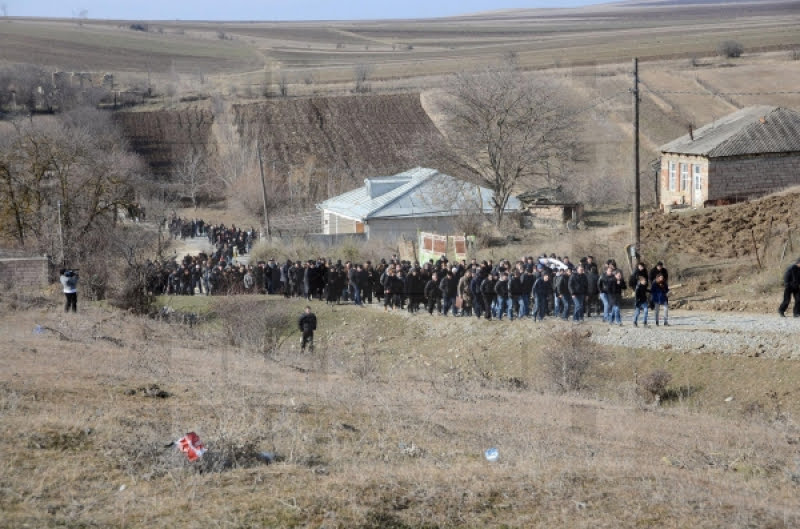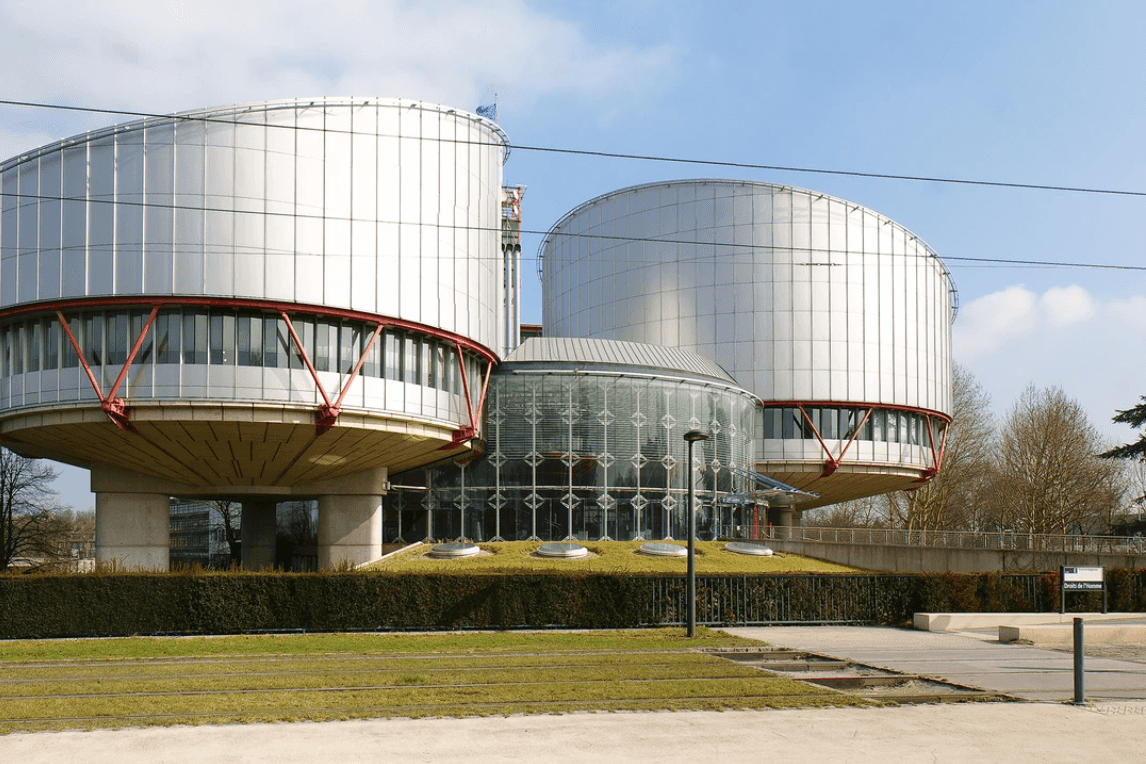

Georgia violated the right to life in the murder of two young men by police and also failed to properly investigate the crime, the European Court of Human Rights (ECHR) has ruled.
On 18 July, the court ruled unanimously that Georgia must pay €50,000 ($56,000) in damages to Tsiala Shanava, whose son Zurab Vazagashvilil was one of two men deliberately killed by police in 2006.
In a special operation on 2 May 2006, police fatally shot Zurab Vazagashvili, 22, and Aleksandre Khubulov, 25, in central Tbilisi. A third person, Bondo Puturidze, 22, was seriously injured but survived.
Authorities claimed that they only returned fire against ‘armed criminals’ in a car.

According to the authorities’ initial version of events, the young men had robbed a pawnshop several days earlier and had been prevented by authorities on 2 May from carrying out another armed robbery. The Interior Ministry claimed they had discovered arms in the car.
Vazagashvili’s father, Iuri Vazagashvili, and mother Tsiala Shanava questioned the entire official account and accused the Interior Ministry of ‘executing’ the men, planting the arms in their car, fabricating other evidence, and violating their presumption of innocence.
In April 2007, the General Prosecutor’s Office closed a case into excessive use of force by police, citing a lack of evidence.
The murder became one of the rallying points of opposition forces accusing the then-ruling United National Movement party and president Mikheil Saakashvili of police abuse and a lack of accountability.
The official investigation was reopened in 2012 after a change of power in Georgia. Based on a ballistics examination and witnesses accounts, they found no proof that the men opened fire first.
The investigation led to the prosecution in 2015 of five former senior officers that previously supervised the criminal police and special forces units.
Irakli Pirtskhalava, the former deputy head of the criminal police unit, was among the convicted senior officials. He was sentenced to 12 years in prison for organising the police operation motivated by a vendetta, due to personal conflict with Khubulov.
The Georgian Court of Appeals upheld the decision two years later.
‘Inadequate’ steps by the state led to another tragedy
Gagi Mosiashvili, the long-time lawyer of the Vazagashvilis family, told the Georgian Public Broadcaster following the ruling that ‘It’s always worth seeking justice and truth […] the 2 May 2006 case is an example of how a state should not treat any of its citizens’.
He said they were yet to read the full text of the ruling.
In a press release published together with the ruling, the ECHR said that the 2015 convictions were partially based on the findings of an independent investigation by the victim’s father Iuri Vazagashvili. Vazagashvili set up rights group Save a Life to counter police impunity which gathered evidence that contradicted the official investigation into his son’s death.
The ECHR ‘particularly noted’ that the father’s attempts to expose the truth behind the investigation and police corruption led to his death.
In January 2015, Iuri Vazagashvili was murdered with a bomb planted at his son’s grave. A month later, authorities arrested police officer Gia Sosanashvili, who was sentenced to 20 years in prison in November.

The ECHR decision on the case came the same day as the Strasbourg Court ruled in another high-profile dispute — over ownership of pro-opposition Georgian TV station Rustavi 2.
[Read more on OC Media: Georgia’s Rustavi 2 TV transferred to previous owner after ECHR ruling]
Georgian Justice Minister Tea Tsulukiani held a press conference within an hour of the ECHR’s ruling.
‘It is unfortunate that the [ruling over the] case of Rustavi 2 entirely eclipsed the Strasbourg [Court] ruling on Vazagashvili’s case, which is far more important’, Tsulukiani said.
She urged the public to refer to Articles 90 and 92 of the ECHR decision.
The ECHR called father Vazagashvili’s murder in 2015 ‘another vivid example of how tangibly damaging the consequences of a lack of due diligence on the part of the authorities investigating life‑endangering crimes can be, particularly where police corruption is involved’.
The ECHR said that they looked into the case as the ‘procrastinated justice’ did not ‘provide sufficient redress’ to the family. It took nine years for the Georgian state to acknowledge the crime while the victim’s father carried ‘the burden of investigating the crime’.
‘By taking over an investigative role which was normally the responsibility of the authorities, he put himself at almost certain risk of retaliation’, the ECHR noted.
The Court also said they had to intervene given the disproportionately lenient sentences given to former police officers Pirtskhalava and Giorgi Tsaadze in 2015 — 16 years in prison each.
According to ECHR, they were given ‘less than the permitted 20 years to life’ sentences. They also noted the ‘expected’ reduced sentences under the 2012 universal amnesty. As a result, each got 12-year prison sentences.
The ECHR ‘regretted’ that Georgian legislature permitted the granting of amnesty or parole to a state agent committing such a crime as Pirtskhalava and Tsaadze had, and that the Georgian court also failed to ban the murderers from re-joining public office after they serve their terms.









